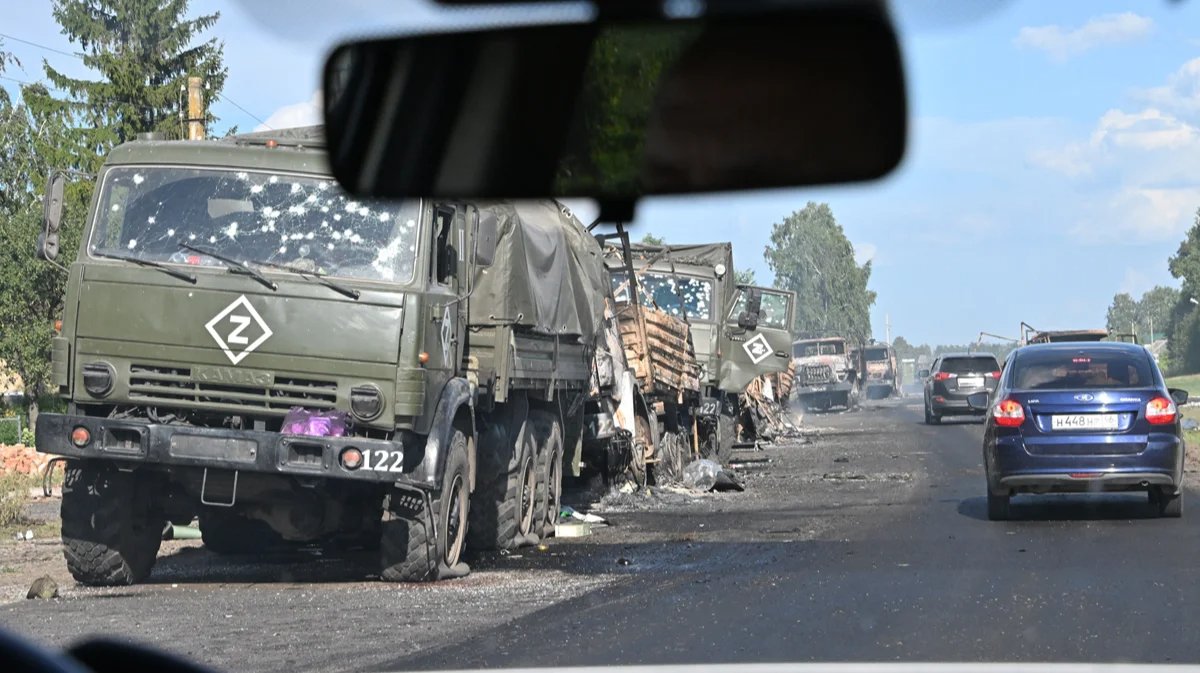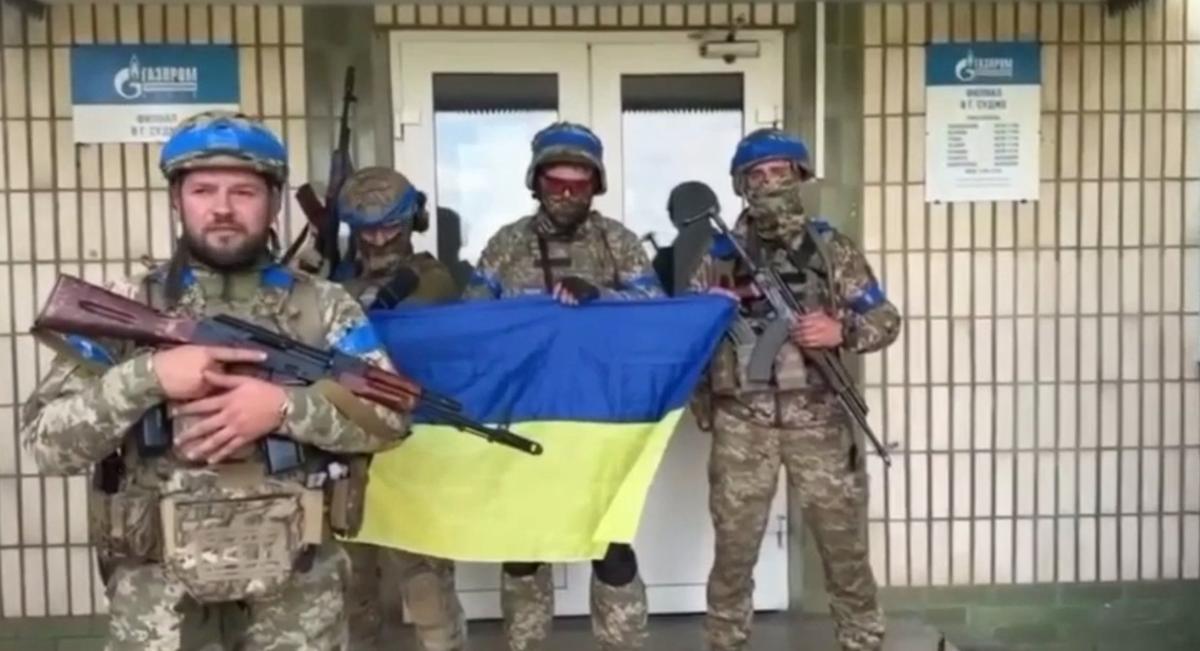
Damaged Russian military vehicles in Russia’s Kursk region, 9 August 2024. Photo: Anatoly Zhdanov / Kommersant / Sipa USA / Vida Press
Russia’s National Anti-Terrorism Committee launched a “counter-terror operation” in the country’s western Kursk, Belgorod and Bryansk regions on Friday as the incursion into Russia’s Kursk region by the Armed Forces of Ukraine (AFU) showed no signs of slowing.
The National Anti-Terrorism Committee accused Ukrainian forces of causing civilian casualties and damaging residential buildings in an “unprecedented attempt to destabilise the situation” in Russia’s border regions, and said that anti-terror measures would be introduced “to prevent further threats of terrorist acts and to ensure citizen safety”.
Counter-terror operations grant regional authorities and security forces widespread powers that allow them to restrict movement, monitor phone communications, and introduce heightened stop and search measures.
The counter-terror measures came just hours after authorities in the Kursk region declared a “federal-level emergency” amid the AFU’s ongoing incursion, with footage published by independent media outlet SOTA on Friday showing hundreds of people who had independently evacuated from towns and villages near the Ukrainian border gathering outside humanitarian aid centres in the regional capital Kursk.
Russian Health Minister Mikhail Murashko said on Friday that 55 people had been hospitalised as a result of Ukrainian attacks on the region, of whom 12 were in a critical condition.
A video that circulated widely on Ukrainian Telegram channels on Friday appeared to show Ukrainian soldiers from the AFU’s 61st Mechanised Brigade outside a Gazprom office in the town of Sudzha, claiming that the town was “controlled by the AFU” but that the situation was “calm”.

AFU troops outside a Gazprom building in the town of Sudzha in Russia’s Kursk region, 9 August 2024. Photo: UNIAN
Sudzha’s Mayor Vitaly Slashchev later denied claims that the AFU had captured the town, telling Russian state news agency TASS that residents were being evacuated but that “Sudzha is ours”.
On Saturday, Russia’s Defence Ministry said that Russian forces were “continuing to repel the attempted invasion” of the region by Ukrainian troops and that Kyiv had “lost” 1,120 troops and 140 vehicles since it began its incursion on Tuesday. The ministry’s decision to redeploy forces from the neighbouring Belgorod region as well as from Russian-occupied areas of Ukraine’s Donetsk region was met with harsh criticism from Russian pro-war bloggers on Friday.
Russia’s Permanent Mission in Vienna, which represents the country at the various international organisations based in the city, said on Friday evening that it had informed the International Atomic Energy Agency that “pieces of intercepted rockets” had been found at the Kursk Nuclear Power Plant in the Kursk region city of Kurchatov, accusing Ukraine of “reckless actions” which were “threatening not only the Russian nuclear facility, but also the entire global nuclear industry”.
Kurchatov’s mayor had earlier urged residents not to panic as fighting between Ukrainian and Russian troops continued “a few dozen kilometres” from the city.
